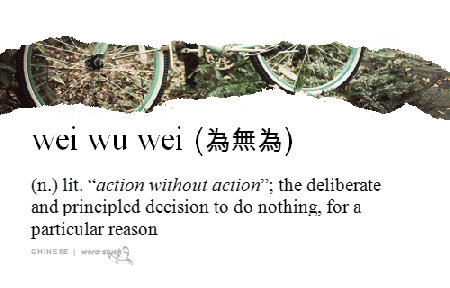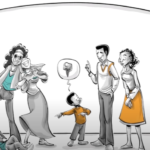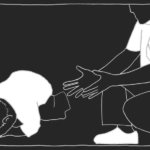
Like thinkers from around the world, Chinese philosophers and thinkers have also made contributions to enlighten their fellow human beings to live a life of solace and integrity. From 475 to 221 BCE, they described the idea of an ever-evolving universe. According to the Daoists, the flow of the universe unfolds naturally through the never-ending fluxes of the Dao (also known as the Way). However, when humans exert their own desires and will onto the natural course of the cosmos, they choose to disrupt their own course of life by becoming stuck on a certain path not truly meant for them.
Wu Wei is a concept that encompasses this idea of being in a state of flow or being ‘in the zone’ where you are one and in alignment with the universe. Being in non-action or effortless action does not mean that one should leave their daily tasks and accomplish them only when they find the innate motivation to do them. It means being so fully present in a moment and coupling that presence with action so that any task can be accomplished effortlessly. The analogy of water can be used to describe this state of flow. Quoting Tao Te Ching:
“That which offers no resistance overcomes the hardest substances; that which offers no resistance can enter where there is no space; few in the world can understand the teaching without words or understand the value of non-action.”
Notably, Wu Wei and its favor of mindfulness and the importance of creativity are in direct contrast with the capitalistic and workaholic environments that are the hub of the Western world. Instead of giving in to such ideals, one should formulate their own and practice being in alignment with the Way instead of fighting against it.
One way to practice this concept is to focus on one’s internal locus of control as opposed to external stimuli or circumstances. For example, one can’t control the time of death or birth but can control what they do with the time that they have been given. To practice wu wei and use it in difficult situations, one must practice its ideas of self-control and mindfulness on an everyday basis.
Written by: Khadija Hassan (Content Developer)
#kindness #stressrelief #Mentalillness #mentalhealth #mentalhealthawareness #Mindfulness #anxietyrelief #linkedin #depressionhelp #bselfaware #stopthestigma #suicideprevention #help #experience #Beselfaware #selfstigma #helpinghand #benice #Iamlistening #stress #people #sleep #Talk #listen #changelives #teaching #iamlistening #selfawarrenessgroup #future #depression #stress #psychologist #psychiatrist #depression #anxiety #doctors #philosophers




